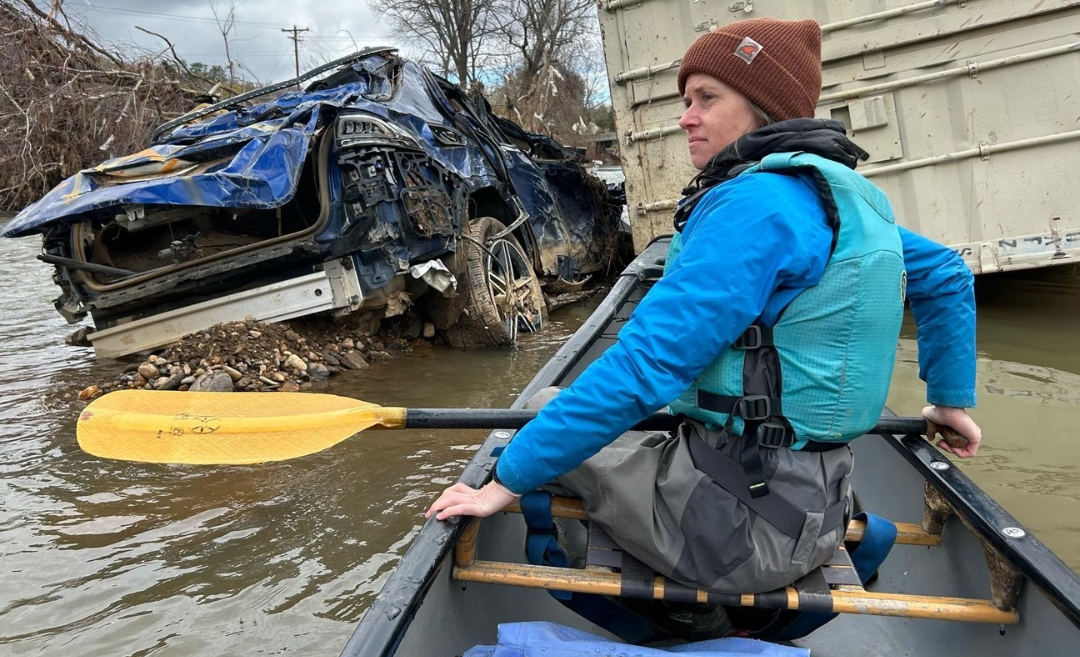The highest-scoring grocers, including Whole Foods (36 points), ALDI (34 points), and Earth Fare (33 points), have taken significant steps to curb single-use plastic waste. These companies have eliminated plastic bags at checkout, promoted reusable alternatives, and set measurable goals for reducing their plastic footprint. In contrast, retailers such as Walmart, Food Lion, Ingles, and Publix received failing grades (F) with scores as low as 7 points, indicating a lack of substantial commitment to plastic reduction efforts.
“This scorecard highlights to both the consumer and business community which businesses are doing the right thing by moving away from single-use plastics. It will be a valuable resource to environmentally-conscious shoppers and will hopefully serve as a wake-up call to the businesses that are lagging behind,” says Jane Laping, a member of Plastic-Free WNC.
Methods: Scorecard Creation
The Plastic-Free WNC coalition tracked the following criteria to create the scorecard: (1) if grocery stores gave out plastic bags, (2) if they charged for paper, and (3) if they incentivized customers to bring reusable shopping bags. Plastic-Free WNC volunteers went to each grocery store to document these policies and assess whether they were being followed. The stores included in the scorecard are essentially the big-box stores around Buncombe County, but the grades can be extrapolated across WNC.
About the Issue
Single-use plastics pose a severe threat to our environment, harming wildlife, polluting waterways, and contributing to climate change. Plastic pollution accumulates in the rivers and forests of Western North Carolina, endangering local ecosystems and communities. Despite increasing public awareness, the vast majority of plastics are not recycled, instead ending up in landfills or breaking down into microplastics that contaminate our soil and water.
MountainTrue conducted extensive microplastic sampling in 2022, and testing showed that microplastics are present throughout the Broad, French Broad, Green, Hiwassee, Little Tennessee, New, and Watauga River Basins. MountainTrue’s study was one of the first to look at microplastic levels across Western North Carolina in order to gain a general understanding of the prevalence of microplastics in our water. MountainTrue also partnered with the Waterkeeper Alliance on a state-wide study for all of North Carolina. Released in 2023, the study found microplastics were present in all surface water samples taken from fifteen different watersheds across North Carolina.
A Brief Policy History
In 2023, Durham was on the cusp of passing a 10-cent fee on disposable plastic and paper bags. In Western North Carolina, Buncombe County, the City of Asheville, and the towns of Black Mountain, Weaverville, and Woodfin were moving toward enacting local ordinances that would ban single-use plastic shopping bags at the checkout aisle and styrofoam takeout containers.
As those local laws moved forward, Senate Leaders conspired with the North Carolina Retail Merchants Association to insert language into the state budget blocking local governments from enacting any regulations on “the use, disposition, or sale of an auxiliary container (153A-145.11)”, including styrofoam containers and single-use plastic bags. The omnibus budget containing these new limits on local governments was released to the public and to the House and Senate for an up-or-down vote without opportunity for debate or amendment. Then-Governor Roy Cooper later allowed it to become law without his signature.
Environmental and public health advocates around the state regrouped and are now focusing their efforts on building support for and passing a state-wide ban on single-use plastic bags and takeout containers.
Urging Action from Businesses and Consumers
Consumers can play a crucial role by supporting businesses that prioritize sustainability and advocating for policies that hold corporations accountable. MountainTrue and the Plastic-Free WNC coalition encourage Western North Carolina residents to use the Grocery Store Plastic Scorecard as a resource for making informed choices and to urge their favorite grocery stores to step up their sustainability efforts.
“Plastic pollution is a growing crisis, but solutions exist. Our scorecard empowers consumers with the information they need to make environmentally responsible shopping choices while pushing businesses to do better,” says Anna Alsobrook, French Broad Riverkeeper at MountainTrue. “We need less single-use plastic in our everyday lives, and the way we shop matters. Businesses can and should be agents for change by reducing the use of unnecessary plastics like single-use bags.”
About Plastic-Free WNC
Plastic-Free WNC is a coalition of environmental organizations, advocates, and citizens dedicated to reducing plastic pollution in our environment. Members include MountainTrue, Sierra Club of WNC, Environmental Action Community of Western North Carolina, Riverlink, Creation Care Alliance of WNC, Beloved Asheville, Asheville En Espanol, NRDC, NCPIRG, and the North Carolina Plastics Coalition. Learn more at plasticfreewnc.com.
About MountainTrue
MountainTrue champions resilient forests, clean waters, and healthy communities. We are committed to keeping our mountain region a beautiful place to live, work, and play. Our members protect our forests, clean up our rivers, plan vibrant and livable communities, and advocate for a sound and sustainable future for all. MountainTrue is active in the Broad, French Broad, Green, Hiwassee, Little Tennessee, New, and Watauga watersheds and is home to the Broad Riverkeeper, French Broad Riverkeeper, Green Riverkeeper, and Watauga Riverkeeper.
In the aftermath of Hurricane Helene, MountainTrue is committed to leading the recovery of our region with a vision to rebuild stronger, safer, and better prepared for the impacts of climate change. mountaintrue.org
###





